School starts soon. I made all the necessary arrangements. I checked their supply lists twice. My children are all packed and ready to go. I start to ease up the wake up time so the first couple weeks of school won’t be so exhausting, and I feel my anxiety start to rise. I’m anxious because last year did not go well. One of my children in particular did worse and worse all throughout the year. As a student, I was “the teacher’s pet.” Now I’m afraid I might be raising “the teacher’s worst nightmare,” the child everyone wishes would get sick and stay home just for a day. I have to remind myself that “the child is the student, not me.” In my own defense, I decided to send a note to teachers and other parents like myself.
Embarassed?
 My cheeks burned. It was my first public humiliation as a parent. I had just learned that my four year old daughter did not sit still during library story time. The librarian’s message was clear. I needed to fix it, or we were not welcome. My sense of ineptitude erupted. Not only was my perfect child a problem, but I felt entirely unable to fix it. I felt the overwhelming injustice of being responsible for the behavior of another, something entirely outside of my control. It didn’t seem fair. I know how to sit still. If they had let me in there I certainly would have made sure she sat still or have taken her out. I felt powerless and responsible. It was awful!
My cheeks burned. It was my first public humiliation as a parent. I had just learned that my four year old daughter did not sit still during library story time. The librarian’s message was clear. I needed to fix it, or we were not welcome. My sense of ineptitude erupted. Not only was my perfect child a problem, but I felt entirely unable to fix it. I felt the overwhelming injustice of being responsible for the behavior of another, something entirely outside of my control. It didn’t seem fair. I know how to sit still. If they had let me in there I certainly would have made sure she sat still or have taken her out. I felt powerless and responsible. It was awful!
I knew I had over-reacted. In fact, I was a little embarrassed about that, too. But my thoughts were caught in the loop of reality. As a parent, I was in fact responsible for something I could not directly control. It threw me for a loop. I wasn’t sure I was cut out for this. I follow rules. I know the teacher is a person and respect her. How could I teach these values to my own children? I didn’t know.
Needless to say, I’ve had a lot of practice since then. That first experience now makes me laugh. I’ve lived through much worse many times over. I’ve been humbled and humiliated many times. In spite of all the times I’ve felt in trouble for my children’s behavior, I would just like all teachers to know: I appreciate you. You are my heros. I respect you. Thank you for all you do for me and my children.
The apple doesn’t fall far from the tree, or does it?
 I am not my child. While it is true that some tendencies and problems do tend to run in families, I had to learn this truth.
I am not my child. While it is true that some tendencies and problems do tend to run in families, I had to learn this truth.
I am not my child. Sometimes I want to yell it at the top of my voice. Part of the time I need to hear it. It helps me remember that my children’s achievements that make me proud are from their efforts and do not belong to me. It also helps me remember that when they embarrass me that that is really okay. They aren’t me, and they deserve to be themselves and learn from their mistakes without me freaking out every time and being overly concerned about our family reputation.
Other times I need teachers and other parents to hear it. Please do not judge me so harshly. I am not my child. I would never intentionally teach disrespect, insubordination, rudeness or disobedience. What parent would? I’m on your side. I’m sad when they don’t care about their homework, ignore you or otherwise cause problems for you. If I was there, I would likely intervene. Believe it or not, I actually appreciate it when you don’t put up with it. I don’t want my children to be allowed to harm you or others or to think those types of behaviors are okay. When you take action sooner, we are all better off.
Shell-shocked
I’ve known teachers who are wonderful with children who are suddenly tongue-tied and uncomfortable around parents, I think for the same reason. No one likes to get attacked or judged based on the behavior of others. When my child does badly, it isn’t the teacher’s fault. It is more likely the child doesn’t understand something, didn’t study, did the work incorrectly or badly or didn’t do the work at all. A zero, even one, kills averages in the grade book.
 “My teacher just hates me,” one of my children informed me trying to excuse a poor grade. If it is the teacher’s fault, there is no control and no responsibility, right? But we need to stop blaming people and stop feeling blamed. It may not be anyone’s “fault.” It might just be the way it is. One time after sitting an hour around a table with a panel full of teachers all informing me of what was wrong with my child, I felt like a mother bear about to strike. It really did seem like all the teachers were ganged up against him. It was an entirely negative, miserable situation for all of us.
“My teacher just hates me,” one of my children informed me trying to excuse a poor grade. If it is the teacher’s fault, there is no control and no responsibility, right? But we need to stop blaming people and stop feeling blamed. It may not be anyone’s “fault.” It might just be the way it is. One time after sitting an hour around a table with a panel full of teachers all informing me of what was wrong with my child, I felt like a mother bear about to strike. It really did seem like all the teachers were ganged up against him. It was an entirely negative, miserable situation for all of us.
If the child, teacher, and parent all feel attacked by each other, how can we possibly work as a team to solve the problem?
Dealing with Shame (and Pride)
Brené Brown, a research professor at the University of Houston Graduate College of Social Work, has studied shame and vulnerability. She points out that none of us likes the pain that comes with shame. It is really easy to blame others, ignore, or in other ways try to slide past or avoid confronting that pain. She has a personal mantra that she wrote for herself that helps her to deal with shame flare ups that we all occasionally feel:
“Don’t shrink, don’t puff up–stay on your sacred ground.” She also mentally reminds herself, “if I can choose pain now or resentment later, choose the pain.”
Her work has helped me process the times I over-react and understand that we are just all human. We are, and that’s okay. If you think about it, it has to be. The truth is, probably all three parties, the student, parents, and teacher could do something differently that might help. We certainly don’t have to point fingers or keep knocking down our best allies.
“Maladaptive” vs “Adaptive” Perfectionism
In a recent article by M. Sue Bergin, perfectionism is differentiated in a way I’ve never heard of before. 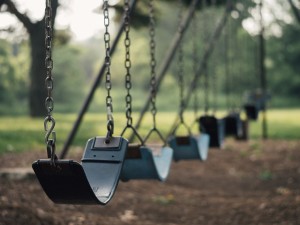 In her article, “The Imperfectly Happy Family,” (BYU Magazine Summer 2015) she points out that many children are extremely successful and high achieving growing up in high-achieving, high expectation families. “For most of these high achievers, the trait [adaptive perfectionism] was positive, associated with low levels of depression and high life satisfaction.”
In her article, “The Imperfectly Happy Family,” (BYU Magazine Summer 2015) she points out that many children are extremely successful and high achieving growing up in high-achieving, high expectation families. “For most of these high achievers, the trait [adaptive perfectionism] was positive, associated with low levels of depression and high life satisfaction.”
The problem is that for those with “maladaptive perfectionism” the children report being “anxious, depressed, and less satisfied with life.” So it seems perfectionism in families can be either a blessing or a curse, but not really ever neutral.
Of course we want our children to be both high-achieving and happy. What differentiates the two? Bergin explains that rigid or “maladaptive perfectionistic” family cultures may convey the message that if you don’t measure up, you don’t belong or you are worth less. She warns, “Unless parents communicate that it’s okay to fall short of the family standard and make mistakes, they could be setting up their children for emotional and spiritual problems.”
We want our children to rise up to lofty goals and expectations, not get beaten down by them. I hope to inspire not deflate. None of us does our best when we feel ineffective or defective.
“You can not make me not love you.”
 That is my mantra. Sometimes I would say it in my mind over and over again when I was enduring a very long tantrum by a child much too old to be expressing himself in such a way. Others’ inappropriate behaviors can be incredibly difficult to live with and to be responsible for. But love and acceptance is a choice and a commitment that thankfully my kids can not control.
That is my mantra. Sometimes I would say it in my mind over and over again when I was enduring a very long tantrum by a child much too old to be expressing himself in such a way. Others’ inappropriate behaviors can be incredibly difficult to live with and to be responsible for. But love and acceptance is a choice and a commitment that thankfully my kids can not control.
Here is where I have all the power. I can’t control all my kids do or say. I don’t like everything they do or say. And I’m absolutely certain that my parents likely felt the very same way. There is no perfect, dream child that is not also a fantasy. Children are very real and very human.
Since the beginning I’ve learned many reasons I never knew about that may be the cause or reason for illogical or unreasonable behaviors. I have a friend who was frustrated with her inconsolable crying child until she found out he had a major heart condition, an unseen cause. My children and many who have had childhood emotional or physical trauma have subconscious or emotional causes of irrational behavior that others don’t understand. Sometimes they don’t even understand it themselves. There are also physical causes in the brain that are only now becoming more known and understood.
We may never know why
We may never know why our children choose things we never would. But teachers and parents please know that it may not always even be in their control. Some causes are invisible. In some respects, we are all doing the best we can even if we can do better.
There are so many things I can not control, but this I know:
I will always care.
You see, that is my choice.
I have control over it.
Therefore,
You can not make me
not love you!
Namaste,
DarEll S. Hoskisson
About DarEll Hoskisson
DarEll S. Hoskisson loves to do hard things, but not too hard. She shares her own challenges, goals and experiences as she guides you into a realistic path of self-reflection and self-improvement. She shares tips on how to find, know and trust yourself so you can decide if other’s suggestions are right for you.
DarEll has the world a little upside down—where work is play and play is work. She actually thinks other people’s problems are fun to try to solve and lights up with a personal challenge. She loves people, harmony, and excellence. She also loves useful things like tools and ideas that make work faster, easier and more fun.
DarEll married in 1993 and graduated from BYU (1995) with a bachelor’s degree in English and Secondary Education. Since then she was adopted by 5 children and has worked with many non-profits. She is currently a certified personal trainer and group fitness instructor—leading pilates and yoga at her local YMCA.
DarEll lives in Florida where she enjoys her family, nature, her work, and encouraging people to live well.
She periodically posts her poems, what she is learning, and service opportunities on her personal blogs:
https://personalabridgements.wordpress.com and https://darellhoskisson.wordpress.com
Twitter •

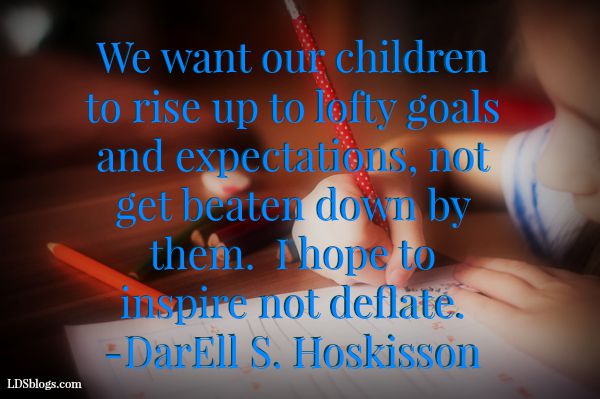
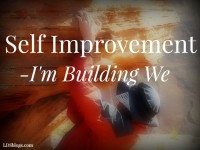
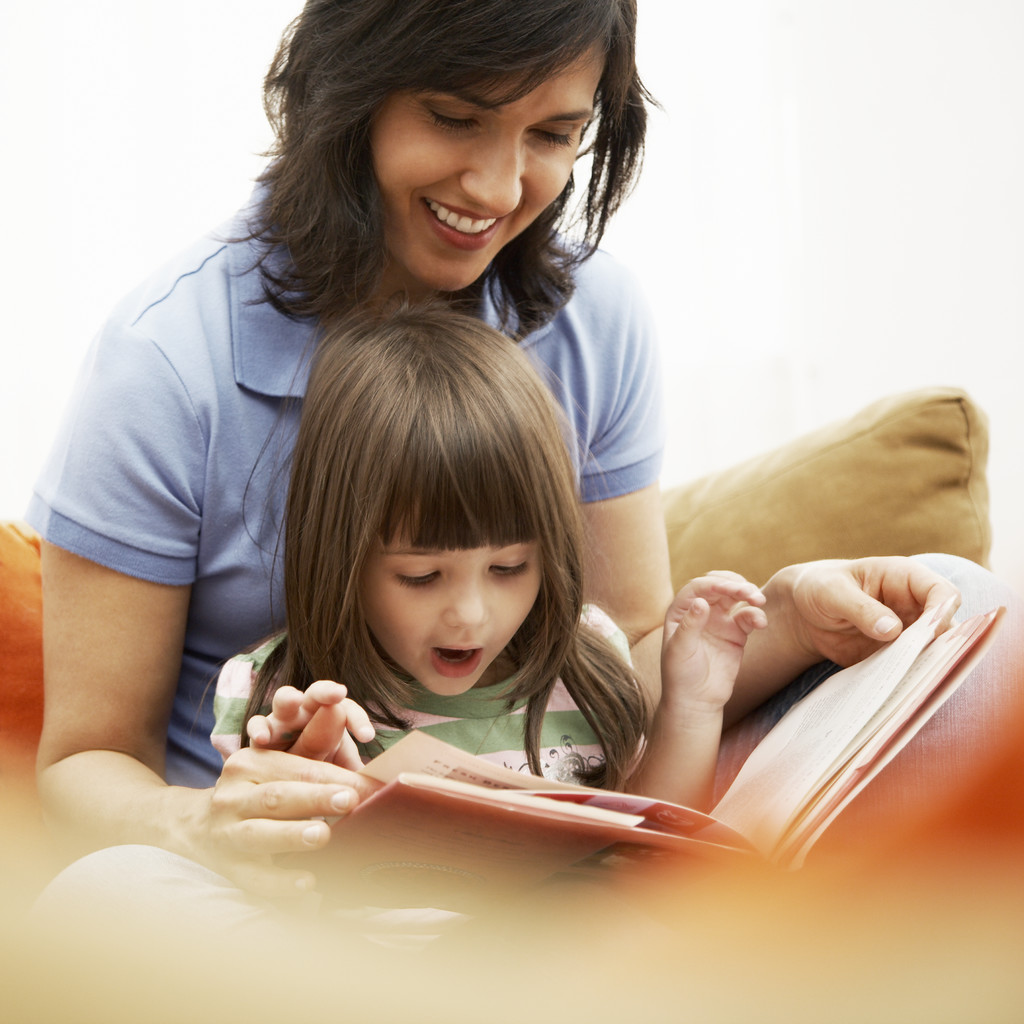

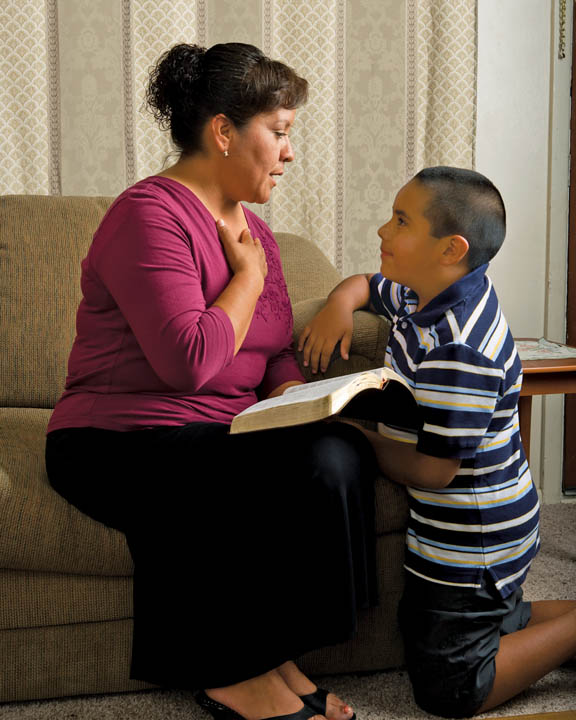
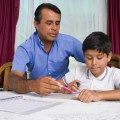

This was written two years ago. Now you are putting away your writing for a while as you become, youself, a full time English teacher for 7th graders. I’m curious what your take on this same article is now. I will probably send it to you. I love your insights. You are well prepared.